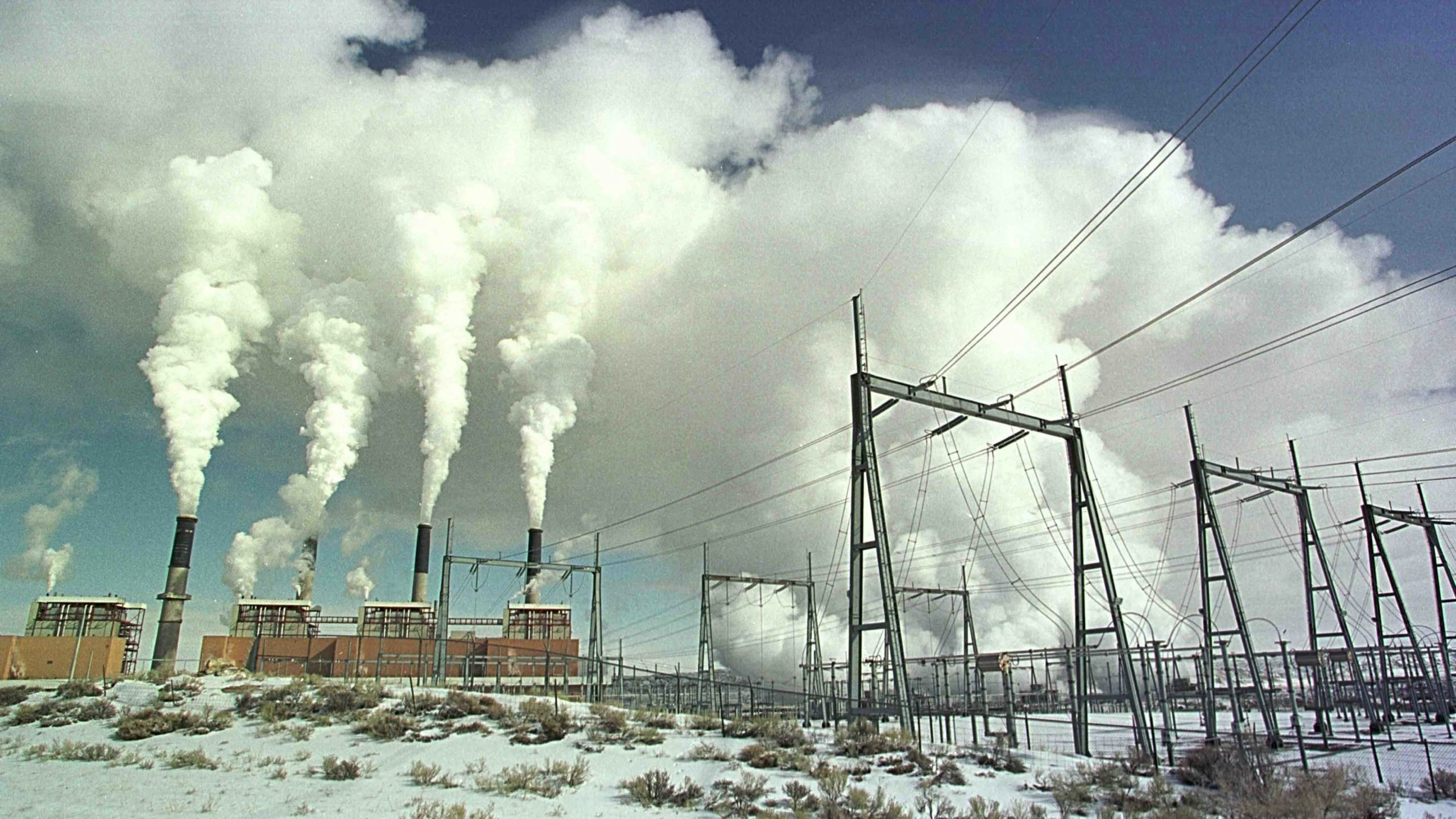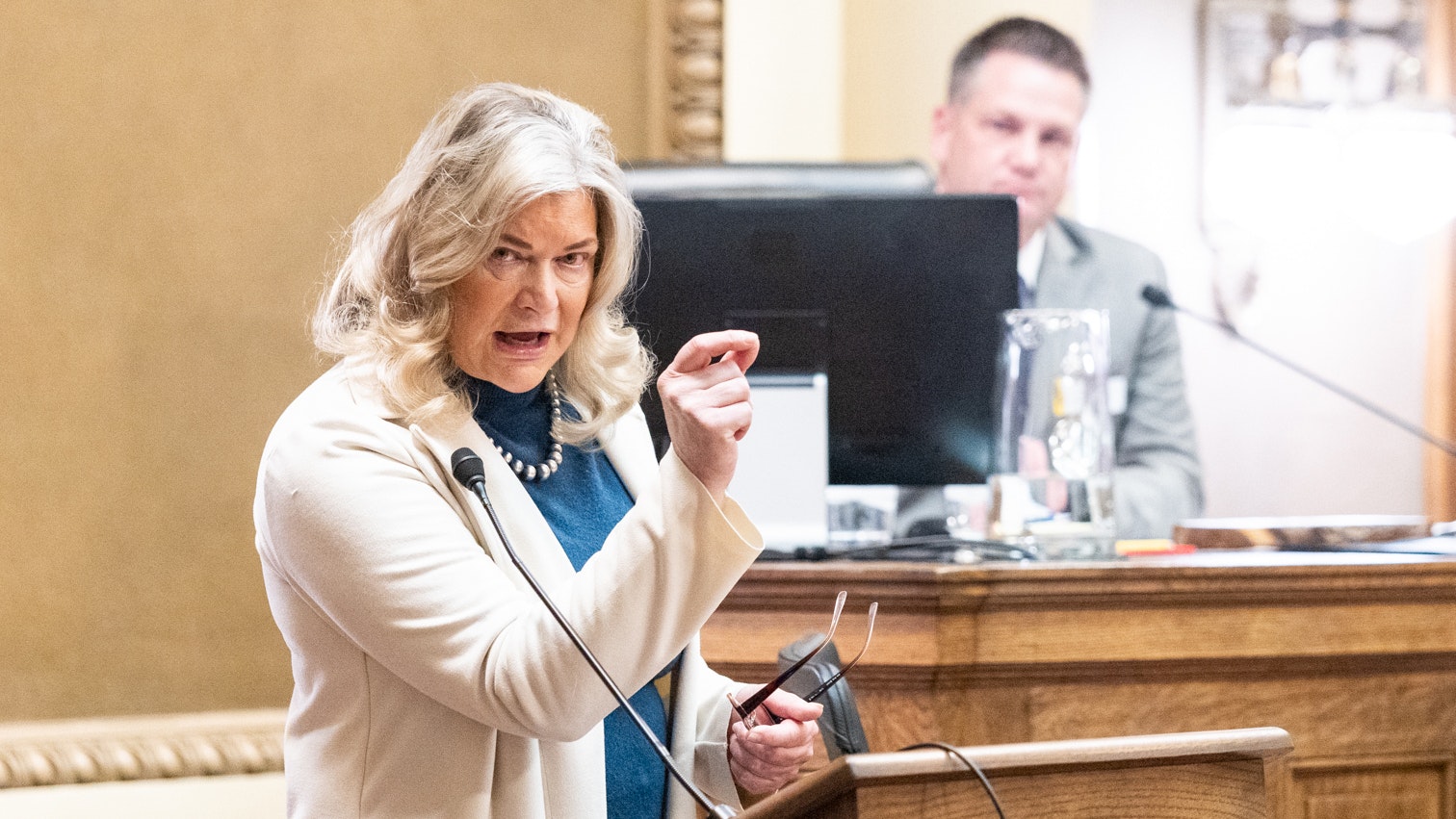The Wyoming legislature Friday approved significant changes to allow utilities to delay the installation of coal-fired power plant carbon-capture retrofits until 2033, three years beyond a previous deadline imposed by state law four years ago.
The legislation, which went down to an end-of-session deadline to come up with a state budget, allows utilities to recoup the cost of retrofits from customers.
The Senate passed the conference report on Senate File 42 by a vote of 18-12, followed by a House vote of 36-17, with nine lawmakers who were excused from the final vote.
The opposition to the legislation came from the Freedom Caucus contingent in the Legislature, who are opposed to the concept of carbon capture.
They believe climate change is a scam and that the United States is wasting money pursuing technology to control carbon dioxide emissions.
There’s also some thinking that the caucus is using the issue as a political cudgel against the governor for his all-of-the-above energy strategy.
Bills Will Go Up
The legislation will now allow rate recovery from electricity customers as well as permit a utility to recoup federal tax credits provided it installs lower carbon-emission technology on its coal plants.
Specifically, the legislation permits a public utility to establish a rate recovery mechanism that collects a surcharge from customers not to exceed 2% of each customer’s total electric bill.
The legislation makes it possible for utilities to recover the costs they spend on carbon capture technology through the Wyoming Public Service Commission, which regulates public utilities.
“The coal industry supports the development and deployment of commercially viable carbon capture technologies for emissions,” said Travis Deti, executive director of the Wyoming Mining Association.
“Barring a significant shift in federal policy and regulations in the near future, this will be necessary to extend the life of our coal fleet and keep Wyoming’s coal resource viable,” Deti said. “Unfortunately, that’s just where we’re at right now.”
Other Changes
Rep. Donald Burkhart, R-Rawlins, chairman of the House Minerals, Business and Economics Development Committee, said previously during Senate debate on SF 42 that the legislation is needed to reflect shortcomings from the original law enacted four years ago.
Burkhardt said that the House-passed version now syncs up with federal tax laws to give power companies the ability to recoup some of the costs on investments through expiring tax credits associated with the new carbon capture technologies.
The goal is for public utilities with coal-burning power plants to reduce their carbon dioxide emissions rather than closing them down as other alternative power generating sources quickly come online, such as wind, solar, hydropower or even small nuclear plants.
The proposal exempts electric utilities with fewer than 10,000 customers, which is designed to help those smaller businesses that can’t immediately pay for carbon capture systems.
The proposal also changes to 75% the minimum standard of capturing greenhouse gas emitted into the atmosphere from the current 90% level.
The amended SF 42 also would require storage technology that annually captures not less than 18,750 metric tons of carbon dioxide emitted by a coal-fired power plant.
The level of emissions in metric tons, as spelled out in the legislation, equates to about 20,668 U.S. tons of carbon dioxide.
Pat Maio can be reached at pat@cowboystatedaily.com.





